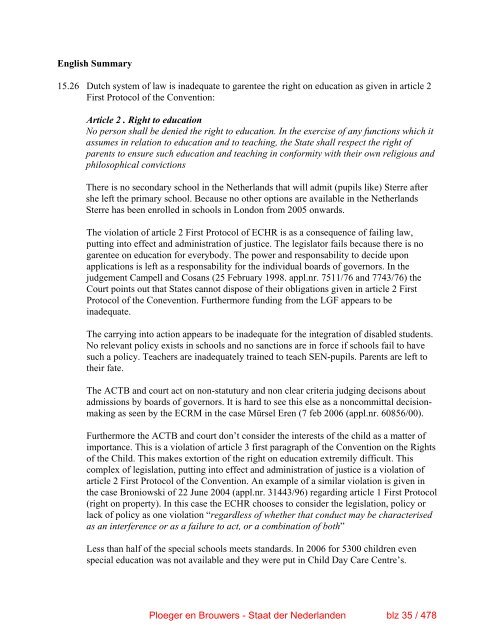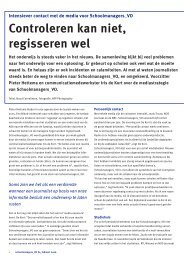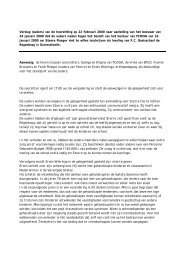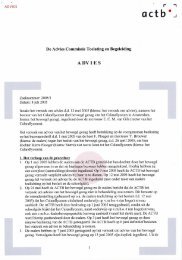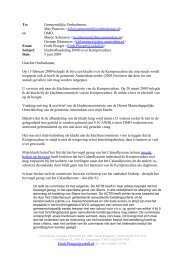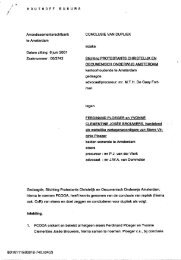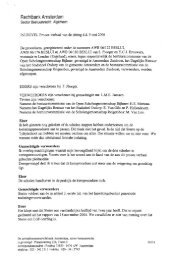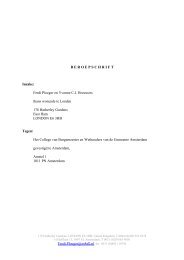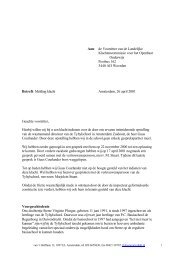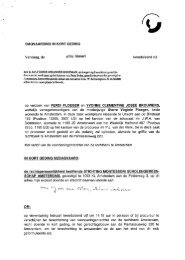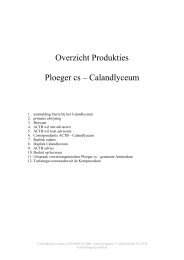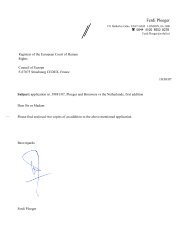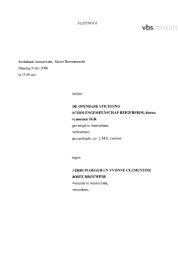2007-09-10, verzoekschrift
2007-09-10, verzoekschrift
2007-09-10, verzoekschrift
Create successful ePaper yourself
Turn your PDF publications into a flip-book with our unique Google optimized e-Paper software.
English Summary<br />
15.26 Dutch system of law is inadequate to garentee the right on education as given in article 2<br />
First Protocol of the Convention:<br />
Article 2 . Right to education<br />
No person shall be denied the right to education. In the exercise of any functions which it<br />
assumes in relation to education and to teaching, the State shall respect the right of<br />
parents to ensure such education and teaching in conformity with their own religious and<br />
philosophical convictions<br />
There is no secondary school in the Netherlands that will admit (pupils like) Sterre after<br />
she left the primary school. Because no other options are available in the Netherlands<br />
Sterre has been enrolled in schools in London from 2005 onwards.<br />
The violation of article 2 First Protocol of ECHR is as a consequence of failing law,<br />
putting into effect and administration of justice. The legislator fails because there is no<br />
garentee on education for everybody. The power and responsability to decide upon<br />
applications is left as a responsability for the individual boards of governors. In the<br />
judgement Campell and Cosans (25 February 1998. appl.nr. 7511/76 and 7743/76) the<br />
Court points out that States cannot dispose of their obligations given in article 2 First<br />
Protocol of the Conevention. Furthermore funding from the LGF appears to be<br />
inadequate.<br />
The carrying into action appears to be inadequate for the integration of disabled students.<br />
No relevant policy exists in schools and no sanctions are in force if schools fail to have<br />
such a policy. Teachers are inadequately trained to teach SEN-pupils. Parents are left to<br />
their fate.<br />
The ACTB and court act on non-statutury and non clear criteria judging decisons about<br />
admissions by boards of governors. It is hard to see this else as a noncommittal decisionmaking<br />
as seen by the ECRM in the case Mürsel Eren (7 feb 2006 (appl.nr. 60856/00).<br />
Furthermore the ACTB and court don’t consider the interests of the child as a matter of<br />
importance. This is a violation of article 3 first paragraph of the Convention on the Rights<br />
of the Child. This makes extortion of the right on education extremily difficult. This<br />
complex of legislation, putting into effect and administration of justice is a violation of<br />
article 2 First Protocol of the Convention. An example of a similar violation is given in<br />
the case Broniowski of 22 June 2004 (appl.nr. 31443/96) regarding article 1 First Protocol<br />
(right on property). In this case the ECHR chooses to consider the legislation, policy or<br />
lack of policy as one violation “regardless of whether that conduct may be characterised<br />
as an interference or as a failure to act, or a combination of both”<br />
Less than half of the special schools meets standards. In 2006 for 5300 children even<br />
special education was not available and they were put in Child Day Care Centre’s.<br />
Ploeger en Brouwers - Staat der Nederlanden blz 35 / 478


